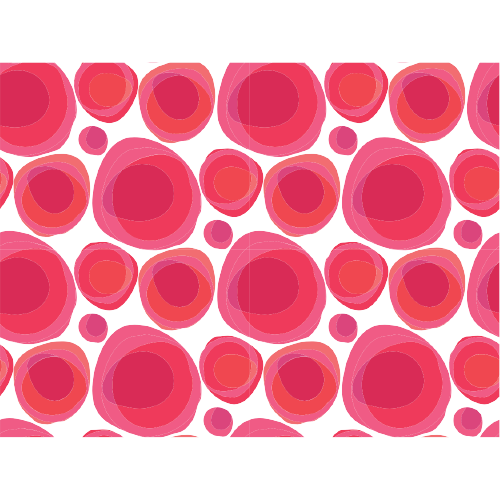Anemia Blood Test
$149.00
Anemia is a medical condition characterized by a decrease in the number of red blood cells or a decrease in the amount of hemoglobin, an iron-rich protein responsible for carrying oxygen in the blood. Anemia can result from various causes and can manifest with a range of symptoms.
Analytes in this test are: 27 Total Analytes:- Complete Blood Count, CBC (21 analytes), Ferritin, Folate or Vitamin B9, Total Iron Binding Capacity – TIBC, Transferrin, % Transferring Saturation, Vitamin B12.
Please see Test Details below for more information.
Description
About the Test
Anemia is a medical condition characterized by a decrease in the number of red blood cells or a decrease in the amount of hemoglobin, an iron-rich protein that carries oxygen in the blood. This can lead to a reduction in the amount of oxygen delivered to the body’s tissues, resulting in symptoms such as fatigue, weakness, shortness of breath, and pale skin. Anemia can be caused by a variety of factors, including blood loss, poor nutrition, chronic diseases, and inherited conditions.
The specific type of anemia is usually determined through a combination of medical history, physical examination, and laboratory tests, including a Complete Blood Count (CBC) and iron studies.
Treatment for anemia depends on the underlying cause and may include dietary changes, supplements, and medications. required if the blood test is positive.
Analytes Tested
8 Analytes
- Complete Blood Count (CBC)
- Ferritin
- Folate
- Iron
- Total Iron Binding Capacity
- Transferrin
- % Transferrin Saturation
- Vitamin B 12
Complete Blood Count (CBC)
A Complete Blood Count (CBC) is a blood test that measures different components of the blood, including red blood cells, white blood cells, platelets, hemoglobin, and hematocrit. It is used to assess overall health and screen for a wide range of medical conditions, including anemia, infection, inflammation, bleeding disorders, and cancer. The results of a CBC can provide important information about a person’s health and help guide further diagnostic testing or treatment.
Ferritin
Ferritin is a protein found in cells that stores iron. It is used by the body to store iron when there is an excess, and releases iron when the body needs it. A blood test for ferritin can help assess the body’s iron stores and determine if a person has iron deficiency anemia or iron overload. Low ferritin levels indicate iron deficiency, while high ferritin levels can indicate iron overload or inflammation. Ferritin levels are an important part of the evaluation of iron status and can be used along with other tests to diagnose and monitor iron-related disorders.
Folate
Folate, also known as vitamin B9, is an essential water-soluble vitamin that is important for various bodily functions. Here are some key points about folate:
-
Function: Folate plays a crucial role in several biological processes, including:
- DNA synthesis and repair: Folate is necessary for the production and maintenance of genetic material (DNA) in cells.
- Red blood cell production: Folate is involved in the formation of red blood cells and is necessary for the production of healthy red blood cells.
- Cell division and growth: Folate is required for proper cell division and growth, especially during periods of rapid growth, such as pregnancy and childhood.
-
Dietary Sources: Folate is found naturally in various foods, including leafy green vegetables (such as spinach and kale), legumes (such as lentils and beans), citrus fruits, asparagus, avocado, and fortified cereals and grains. Some individuals may also take folic acid supplements, which are a synthetic form of folate.
-
Folate Deficiency: Inadequate intake or absorption of folate can lead to folate deficiency. Common causes include poor diet, alcoholism, malabsorption disorders, certain medications, and certain medical conditions. Symptoms of folate deficiency may include fatigue, weakness, pale skin, tongue inflammation, poor concentration, and an increased risk of certain birth defects (in pregnant women).
-
Folic Acid Supplementation: Folic acid supplementation is recommended for women of childbearing age to reduce the risk of neural tube defects in the developing fetus. It is typically recommended to start taking folic acid supplements before conception and continue during early pregnancy.
-
Health Conditions and Folate: Folate deficiency or inadequate folate levels have been associated with an increased risk of certain health conditions, including megaloblastic anemia, cardiovascular diseases, certain types of cancers, and neural tube defects in newborns.
Iron
Iron is a mineral that is essential for many of the body’s functions, including the production of hemoglobin, a protein in red blood cells that carries oxygen to the body’s tissues. Iron also helps to support the immune system and plays a role in energy metabolism. A lack of iron can result in iron-deficiency anemia, a condition characterized by a decrease in the number of red blood cells or a decrease in the amount of hemoglobin. Iron can be obtained through dietary sources such as meat, poultry, fish, beans, and fortified foods, as well as dietary supplements. Blood tests that measure iron levels, such as a Complete Blood Count (CBC) and iron studies, are used to diagnose iron-deficiency anemia and monitor treatment. Overloading on iron can also be harmful, so it is important to maintain appropriate iron levels through diet and supplements under the guidance of a healthcare provider.
Total Iron Binding Capacity
Total Iron Binding Capacity (TIBC) is a blood test that measures the capacity of transferrin, a protein in the blood, to bind and transport iron. It is used along with other tests, such as serum iron and ferritin, to evaluate iron status and diagnose iron-deficiency anemia and iron overload. A high TIBC value indicates a low level of available iron, while a low TIBC value suggests that iron stores are sufficient. TIBC values can be influenced by conditions such as inflammation and liver disease, so interpretation of the test results should be done in conjunction with other clinical and laboratory findings.
Transferrin
Transferrin is a protein in the blood that binds and transports iron. It is used by the body to carry iron from the place of its absorption to the cells that need it, such as red blood cells. A blood test for transferrin can be used to evaluate iron status, along with other tests such as serum iron, ferritin, and Total Iron Binding Capacity (TIBC). The transferrin test can provide important information about the body’s iron stores and help diagnose conditions such as iron-deficiency anemia and iron overload. However, transferrin levels can be influenced by conditions such as inflammation and liver disease, so interpretation of the test results should be done in conjunction with other clinical and laboratory findings.
% Transferrin Saturation
% Transferrin Saturation is a laboratory test that measures the proportion of transferrin, a protein in the blood, that is carrying iron. It is calculated as the ratio of serum iron to Total Iron Binding Capacity (TIBC). The test is used to evaluate iron status and is an important part of the diagnosis of iron-deficiency anemia and iron overload. A low % Transferrin Saturation suggests that there is insufficient iron available to meet the body’s needs, while a high % Transferrin Saturation can indicate iron overload. The % Transferrin Saturation test should be interpreted in conjunction with other laboratory tests and clinical findings to accurately diagnose and monitor iron-related conditions.
Vitamin B12
Vitamin B12, also known as cobalamin, is a B-vitamin that plays an important role in many of the body’s processes, including the formation of red blood cells, the proper functioning of the nervous system, and the synthesis of DNA. A deficiency in Vitamin B12 can lead to a type of anemia called megaloblastic anemia and can also cause nerve damage. Vitamin B12 is found in animal-derived foods such as meat, poultry, fish, and dairy products, and can also be obtained through dietary supplements and fortified foods. Blood tests to measure Vitamin B12 levels are used to diagnose deficiencies and monitor treatment. Vitamin B12 levels can also be influenced by certain medical conditions and medications, so it is important to interpret test results in the context of a person’s overall medical history and clinical picture.
Specimen Requirements
SST tube of blood, serum
Lavender top tube-EDTA, whole blood
Turn Around Time
24- 48 hours
Price For Test
Price: $179







